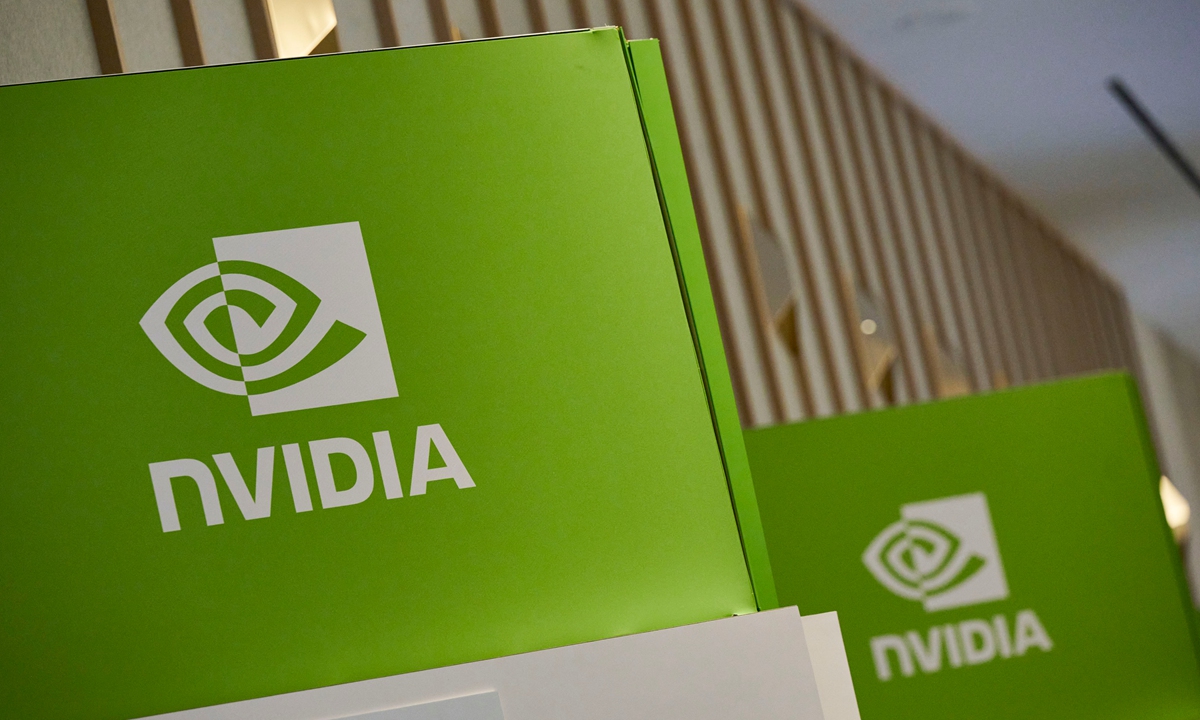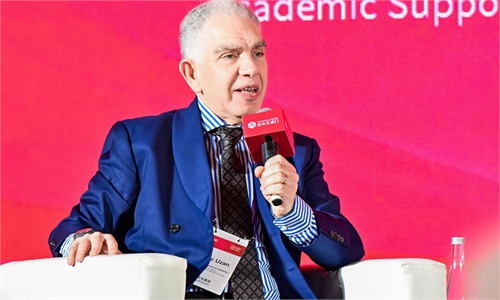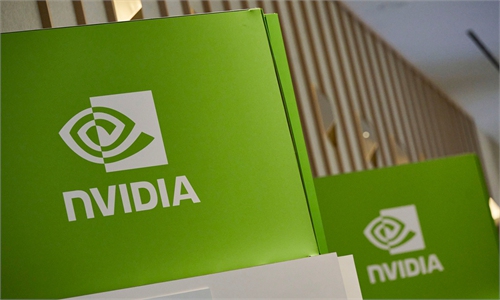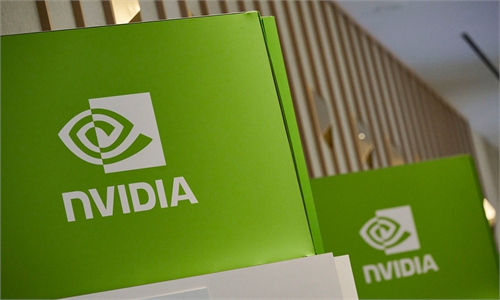Nvidia CEO Jensen Huang says US export control on AI chips to China were 'a failure': report

Nvidia Photo: VCG
The US’ export control on artificial intelligence (AI) chips to China were "a failure," Nvidia CEO Jensen Huang said on Wednesday, Reuters reported.
"All in all, the export control was a failure," Huang was quoted by Reuters as saying, adding that "the fundamental assumptions that led to the AI diffusion rule in the beginning, in the first place, has been proven to be fundamentally flawed.”
Despite the US export controls on AI chips, the US chipmaker is seeking to build a research and development center in Shanghai that would help it to stay competitive in China, where its sales have slumped due to tightening US export controls, Financial Times reported on May 16.
In response to an inquiry from the Global Times, the company responded on Tuesday in an email that "we are leasing a new space for existing employees and this is a continuation of our longstanding presence there," claiming that the company is not sending any GPU designs or core IP to China to be modified to comply with export controls.
In response to Global Times' inquiry on Sunday to confirm whether NVIDIA can still sell the H20 chip to the Chinese market, a spokesperson from the company told the Global Times on Monday that "while we continue to evaluate our options, the H20 ban ended our Hopper datacenter series line in China — we are not able to change the Hopper design to sell to China. With the ban on H20, our competitors in China are now largely shielded from US competition and free to leverage that entire $50B market to build a strong AI ecosystem."
The Nvidia CEO has repeatedly said that China is critical to the company's growth. China generated $17 billion in revenue for Nvidia in the fiscal year ending January 26, accounting for 13 percent of the company's total sales, according to the Reuters.
Huang said on May 6 that China's artificial intelligence market will likely reach about $50 billion in the next two to three years, and that missing out on it would be a "tremendous loss," reported CNBC on May 6.
Global Times



